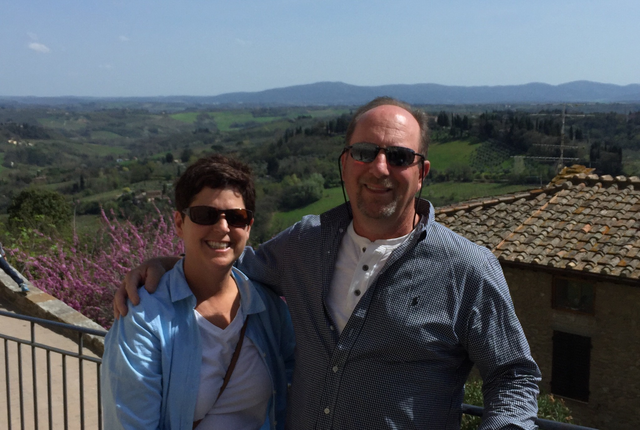Having been diagnosed as a male with breast cancer almost three years ago to the day, I often reflect on how that diagnosis has changed my life forever. There was an immediate emotional impact that I felt that day, one I will never forget. I am quite sure that unless you have experienced the cancer journey, its many steps along the way are difficult to understand. However, with my diagnosis, I quickly realized that my life was not the only one that would go through a dramatic change. In my case, my wife, who was my caregiver, also had to deal with my life-changing disease. Her life would take a sudden detour from our normal lifestyle and there were questions that would need to be asked, but many without answers. For example, would I survive? How long would this ordeal last? How would I respond to surgeries and treatments? When could my wife begin to feel comfortable to go out with friends again without feeling guilty?
 When we met with my doctors shortly after my diagnosis, including a radiologist, oncologist, surgeon and nurse navigator, I soon realized that each of these professionals were not just treating me as to how our lives would be impacted – they were treating both of us. My wife was at every appointment, and as each doctor explained what protocol would be followed throughout my journey, I realized she would be in this with me for the long haul. As my caregiver, her life would morph into my life during this time, which would be a daunting life change.
When we met with my doctors shortly after my diagnosis, including a radiologist, oncologist, surgeon and nurse navigator, I soon realized that each of these professionals were not just treating me as to how our lives would be impacted – they were treating both of us. My wife was at every appointment, and as each doctor explained what protocol would be followed throughout my journey, I realized she would be in this with me for the long haul. As my caregiver, her life would morph into my life during this time, which would be a daunting life change.
We understand the role a hospital cancer caregiver provides while treating their patients with comfort, care and compassion. They assumed this when they chose this admirable career, and I will tell you that mine were exceptional in every aspect. However, when it comes to a family member becoming a caregiver for a loved one, it becomes more challenging – there is a strong emotional side to contend with, as well as the fear of the unknown.
As a man with breast cancer, I feel friends and relatives looked differently at us as to how they wanted to participate in our lives during my treatments. Please understand that many friends visited us often and supported us with visits, calls, emails and bringing over meals. My wife was my caregiver, yet she also worked full-time. Perhaps our friends didn’t realize that she needed the same support that they might have given a male caregiver.
If I could offer one piece of advice, particularly during the busy holiday season, it would be this:
Like cancer, care-giving is not gender-specific.
The needs are the same for men or women, whether it be to help with household tasks or to offer a kind word.



